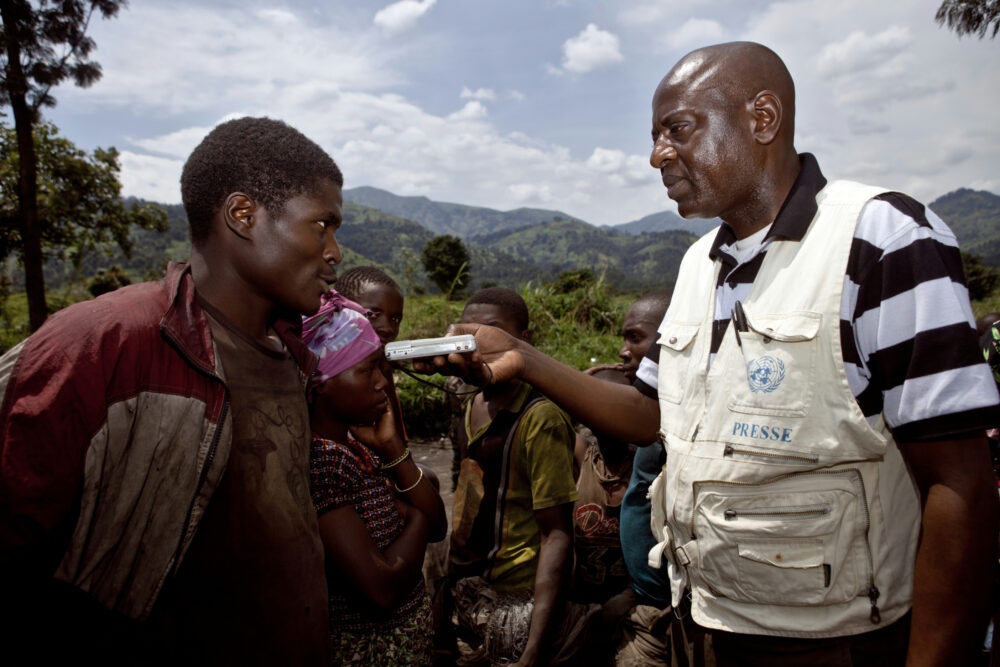The Foundation Hirondelle joins the various organisations that protect journalists in observing the International Day for the Elimination of Impunity for Crimes against Journalists: this year’s record is particularly gloomy. Since the outbreak of the war in Gaza on 7 October 2023, more than 150 journalists have been killed in Palestine and Lebanon[1]. According to the Reporters Without Borders (RSF) barometer, 547 journalists are currently detained around the world. From Mexico to Vietnam, Russia to Bangladesh, journalists are victims of abuse. Detentions, disappearances, kidnappings – the list of crimes committed against them is unfortunately too long, as is the justice system, which often struggles to prosecute the perpetrators of such violence.
The Fondation Hirondelle recalls the major role played by journalists in building just and peaceful societies, by providing citizens with access to reliable, local and independent information, all the more so in crisis and emergency situations. In these situations, access to reliable information can be a matter of survival, and it is all the more important to create safe conditions that enable journalists to do their work independently.
This is the theme of the 2024 World Day of Commemoration and Action: ‘The safety of journalists in times of crisis and emergency’. To mark the occasion, Brice Ndangoui, editor-in-chief of Radio Ndeke Luka, the radio station created by Foundation Hirondelle in Central African Republic 25 years ago, will be taking part on 6 November in one of the panels organised in Addis Ababa by UNESCO and the African Union on the theme of ‘Supporting journalism and humanitarian information in times of crisis: Best practices from Africa’.
In October 2024, in its report ‘Journalism in the #metoo era’, RSF revealed the danger of working on women’s rights, gender issues and/or sexist and sexual violence, but also the persistent impunity: 93% of journalists surveyed said they had not seen any sanctions taken against the perpetrator of an attack against a journalist working on these issues[2].
In May 2024, to mark World Press Freedom Day, UNESCO published a report revealing that 70% of journalists covering environmental issues had been attacked in the course of their work. So whether they are covering conflicts, humanitarian disasters, climate crises or gender issues, journalists continue to face disproportionate threats.
Citizens around the world need to be able to make decisions based on facts. If journalists can’t do their job safely, how can we fight disinformation and misinformation? Today, more than ever in the current political, technological and economic context, it is necessary to protect journalists in order to protect access to information.
Caroline Vuillemin, Fondation Hirondelle General director
[1] https://www.pressemblem.ch/pec-news
[2] More than a quarter of respondents (27%) believe that, in their country, it is dangerous for journalists to work on women’s rights, gender issues and/or sexist and sexual violence. This violence takes various forms. Read the report here.

